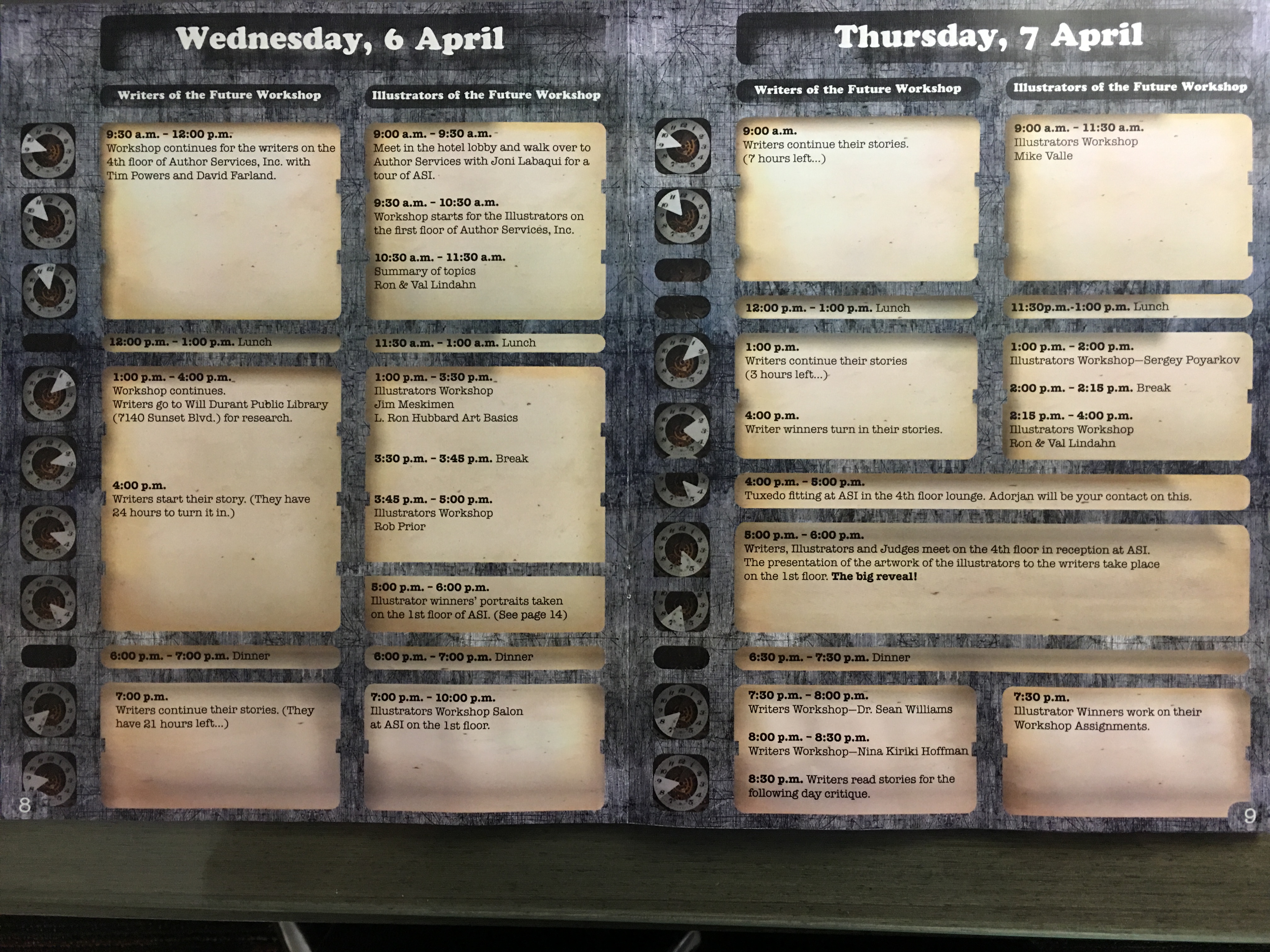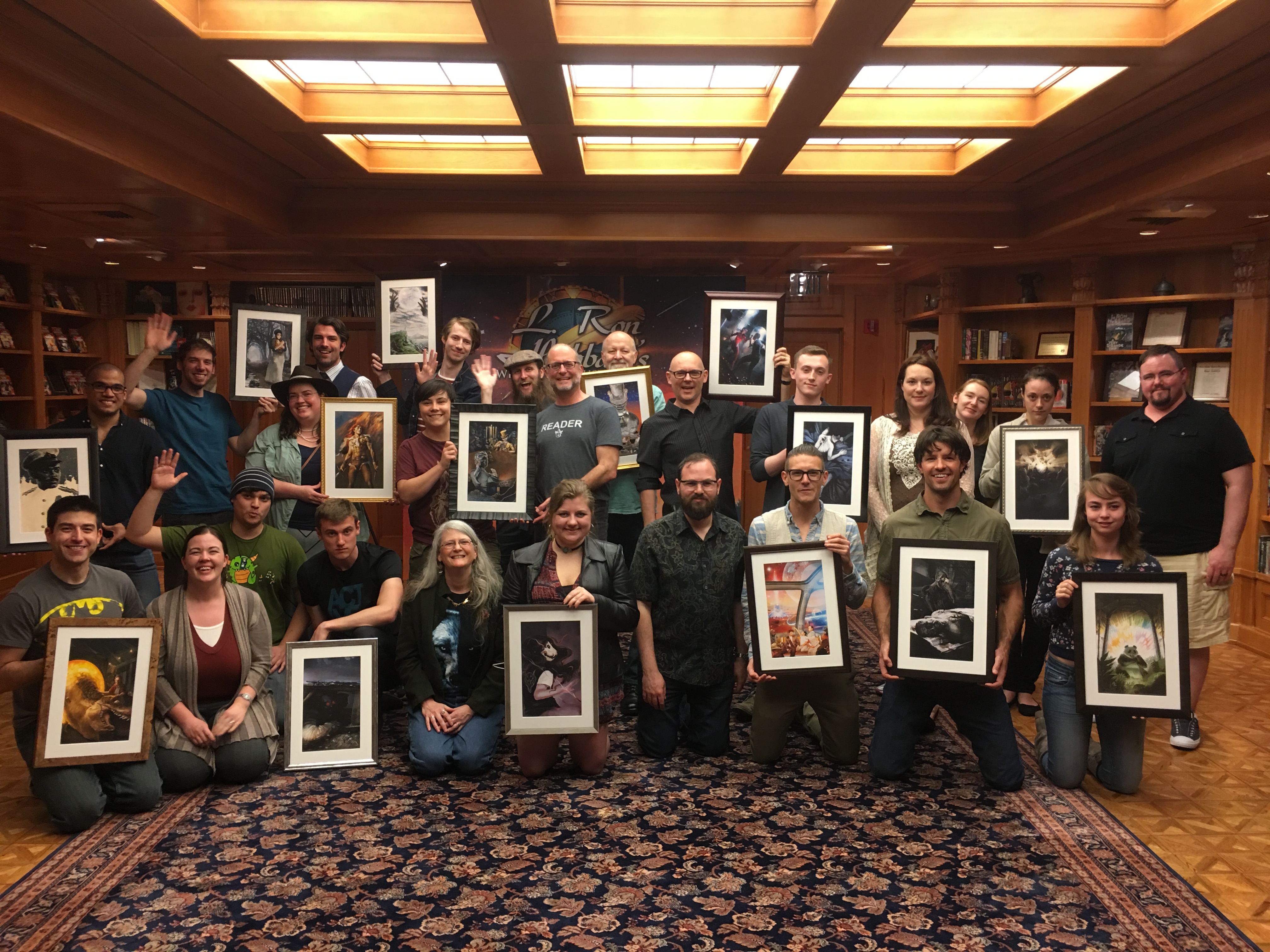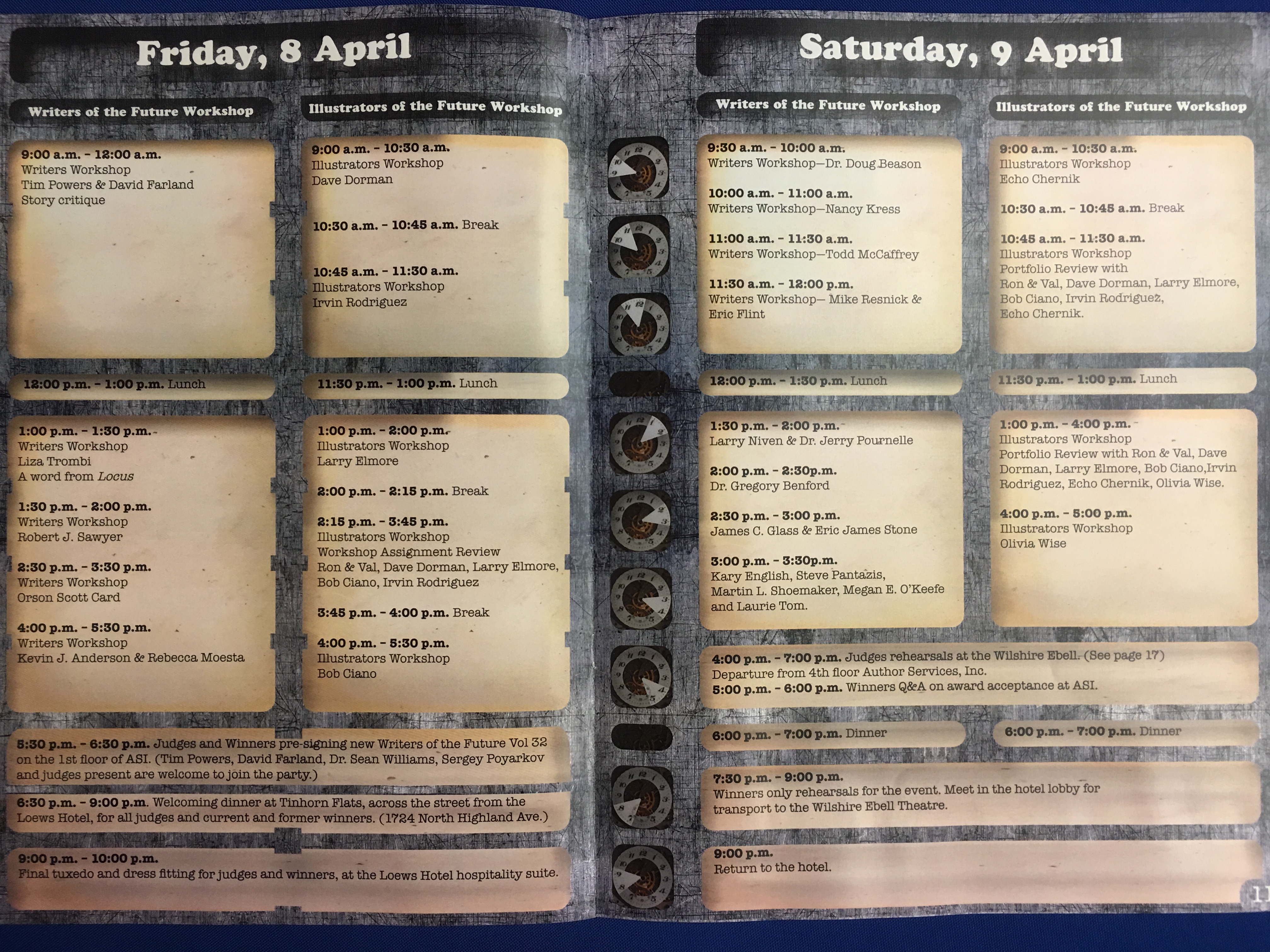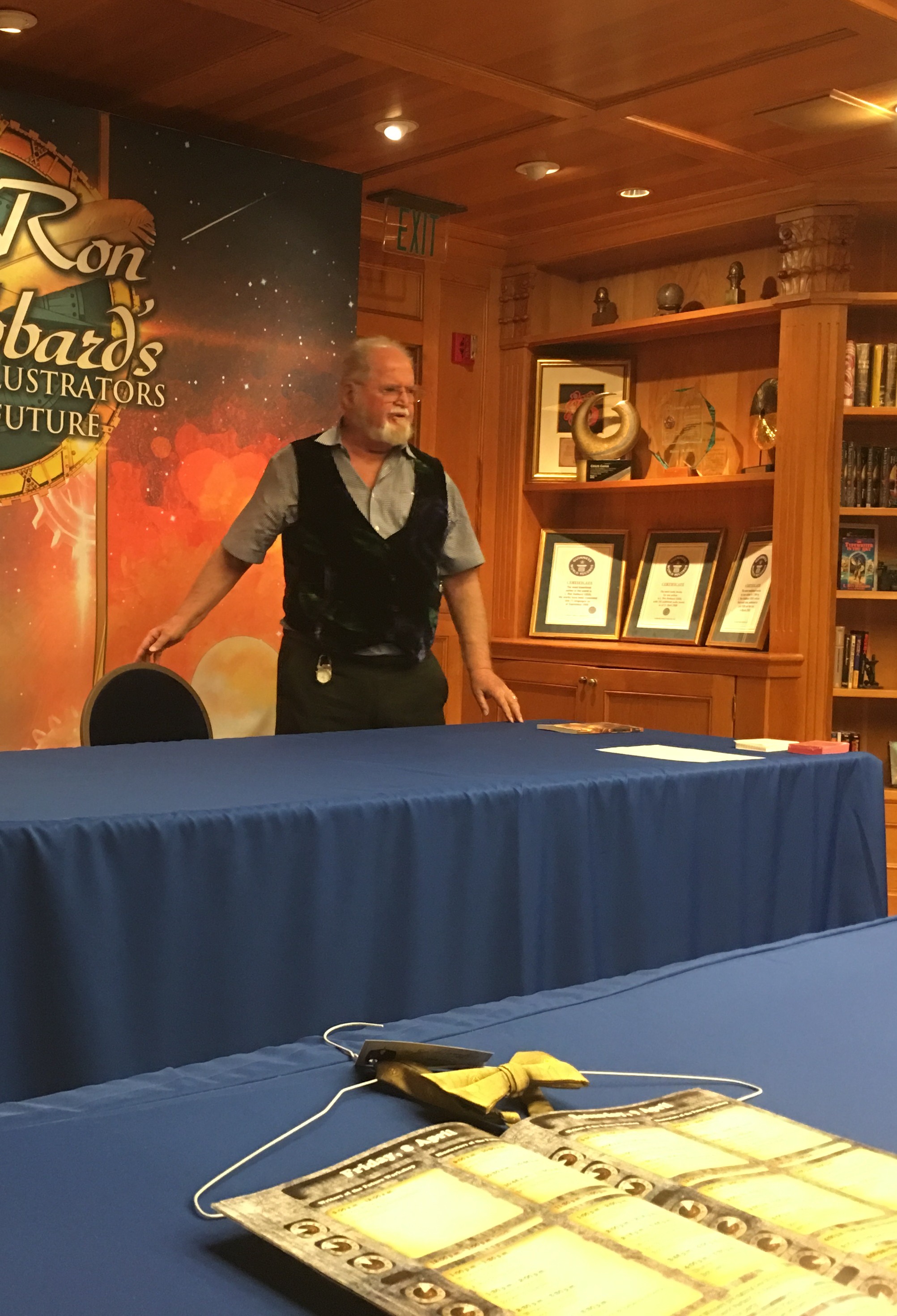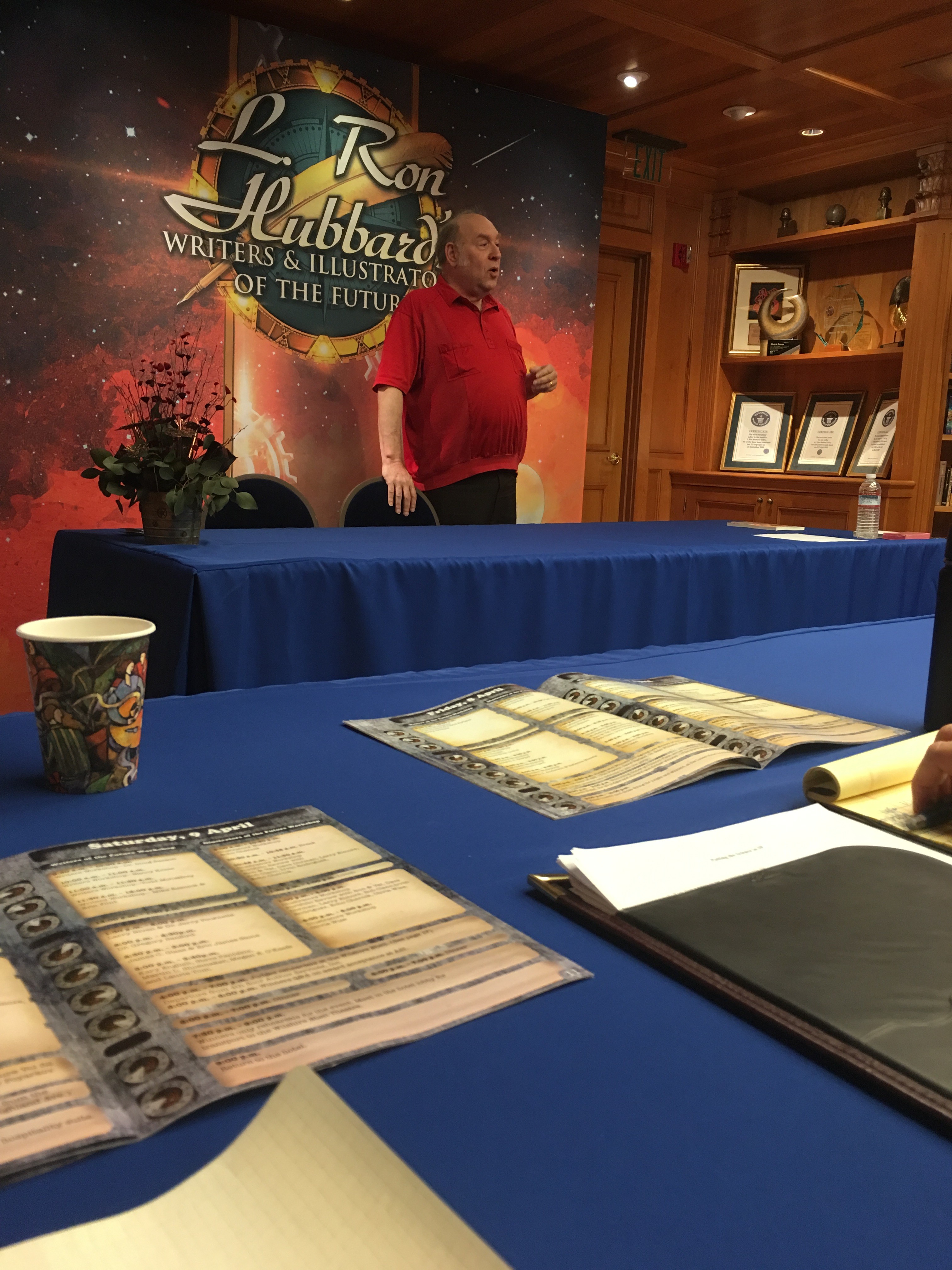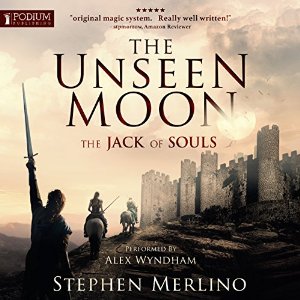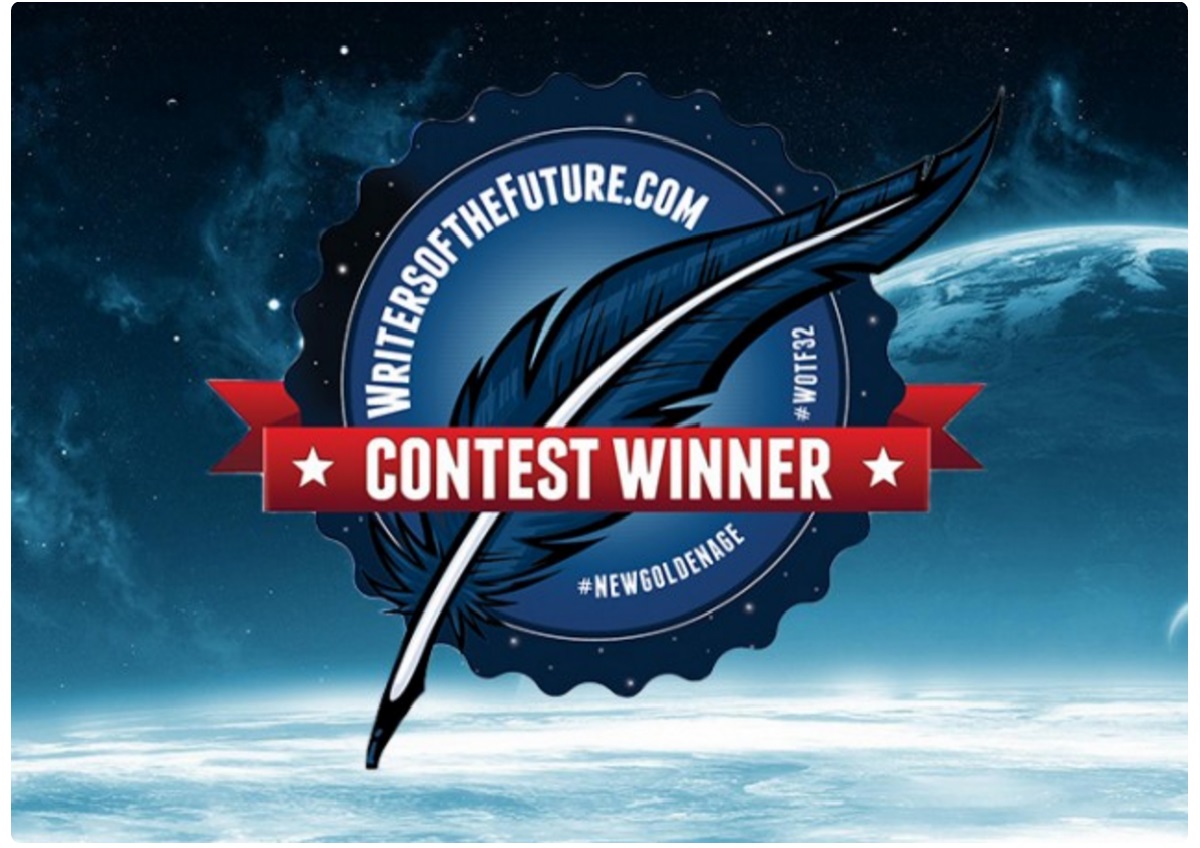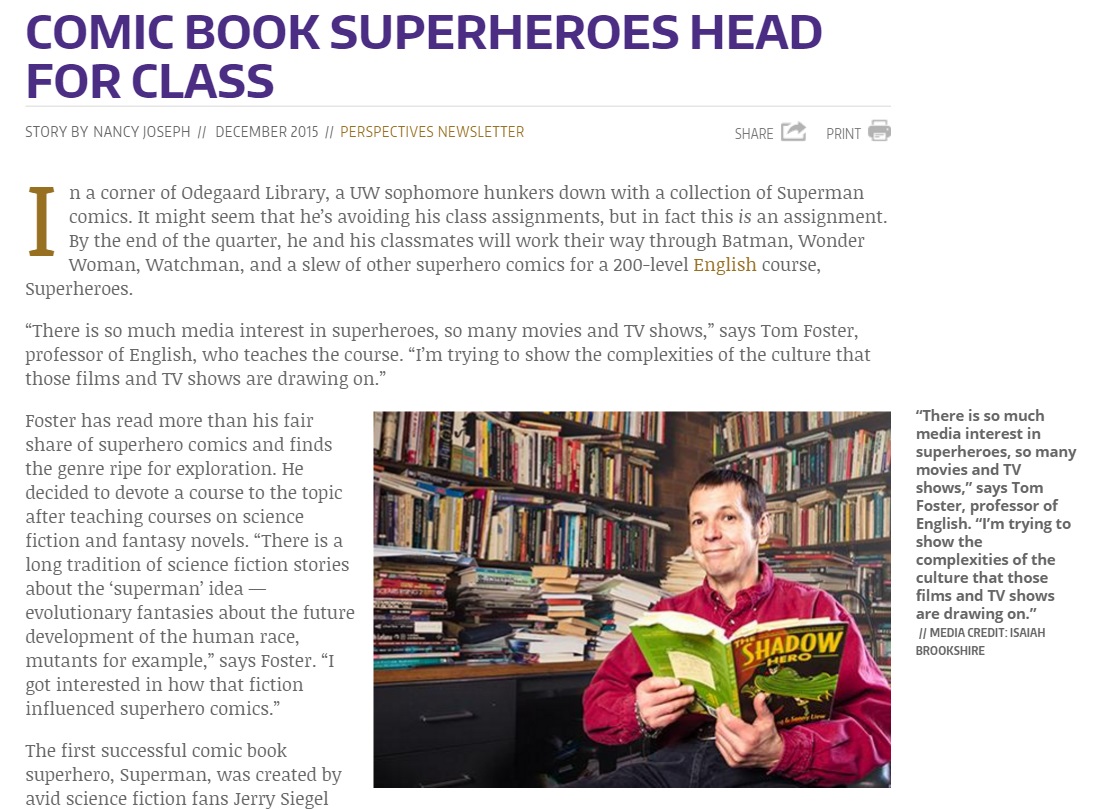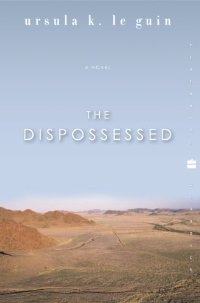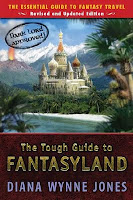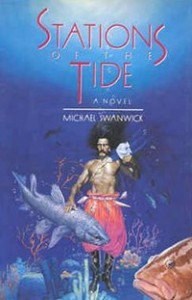Some of the best spec-fic holds up a mirror in such a way that we see aspects of our species/culture anew. Often this is accomplished by showing first contact. Ursula Leguin’s Left Hand of Darkness comes to mind, with its human diplomat arriving at a planet of hermaphrodites; also Larry Niven’s Ringworld, with its humans, puppeteers, and kzinti.
The First-contact Mirror
I recently found a hilarious first-contact mirror in Mary Sisson’s novel Trust (sequel to Trang), which follows the human diplomat Phillipe Trang as he interacts with five or six different species of alien.
In these scenes, inter-species communication is made possible by a Universal Translator device, which struggles to decode the expletives of the human space marines assigned to protect Trang. Since the POV in the scene is that of the alien, the results are hilarious and thought provoking.
Excerpt from Trust
(Setting: Trang and his marines meet the alien (named Daring Attack) near their crash site on a wild and remote part of an alien planet as a giant T-rex-like thing referred to as a “Giant Mankiller” approaches through the jungle. The dialogue starts with the marine nick-named Princess).
“I cannot see it,” said Noble Person, who was holding a machine to its face.
“Of course not—if it was that close, we’d be dead,” said Daring Attack.
“What distance—” Noble Person stopped.
“His units for measuring length—” said the diplomat.
“I am knowledgeable of that fact,” said Noble Person. “If the carnivore continues toward us at the rate of travel at which it is currently traveling, at what time will it reach us?”
“His units for measuring time—” said the diplomat.
“May it remain for eternity in the mythological place where the spirits of the ignoble dead reside!” said Noble Person.
“I express my regret,” said the diplomat.
(The marines then launch surveillance drones and show the video to Daring Attack):
“There it is,” said the alien holding the sheet.
“Sacred digestive by-product,” said Noble Person.
Daring Attack tried not to dwell on the fact that he was risking his life for people who worshipped digestive by-products. Instead, he noticed a large dark blob on the sheet.
“Mythological figure who regained life after being dead for three days and is engaged in reproductive activity, it is large,” said the other alien.
“Is that the carnivore?” asked Noble Person.
Daring Attack looked at the blob. Was that the Giant Mankiller? He couldn’t tell.
(When the marines send armed drones to attack the Giant Mankiller, the marines watch through video monitors, muttering…)
“Draw closer on, you small individual conceived in a socially inappropriate manner,” said the alien. “Draw closer and obliterate that buzzing flying insect that is engaging in reproductive activity with you.”
Has it gone insane? Daring Attack wondered.
After I was done howling with laughter, these are some of the things I found myself thinking about:
Why do humans use feces and sex in expletives? Okay, we’re primates, we like to throw poo, and now that we have words to do it with, we don’t need to get our hands dirty. I get that. But sex? Do all human cultures do that, or just puritanical Western ones? For that matter, do (puritanical) Islamic cultures do that? Do Hindis? Do the Chinese? The Japanese? Maori? Australian Aborigines? Are we all sex-and-potty mouths?
If you are fluent in these cultures, please comment and share.
 http://www.sfsignal.com/archives/category/interviews/mind-meld/
http://www.sfsignal.com/archives/category/interviews/mind-meld/


